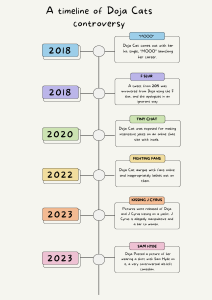Columbus Day causes controversy
October 29, 2015
Since 1937, the second Monday of every October is federally recognized as Columbus Day. The day honoring Christopher Columbus, who many believe as the man to discover America, has been around since the early 1800s. However, in recent years the holiday has taken on much criticism. Some people, including myself, believe that Columbus’ ill-treatment of the people indigenous to the ‘New World’ was too cruel and damaging for a holiday to honor the man.
When Columbus discovered the Americas in 1492, the era of the slave trade was beginning to spread world wide. He and his men enslaved people from the West Indies and Caribbeans as early as his first voyage. In voyages after, Columbus sent thousands of Taino ‘Indians’ from the island of Hispaniola to be sold. Columbus then forced the remaining slaves on the island to conduct hard labor in gold mines and on plantations. Sixty years after Columbus’ arrival, little more than a few hundred of the original 250,000 Tainos remained on the island.
Columbus treated many natives of the West Indies like he treated the Tainos. His actions eventually were brought to the attention of the Spanish royalty who forced him to return home. Columbus was also the cause of epidemic diseases brought to the New World and destruction of all who he governed as governor to the Indies.
Many of Columbus’ actions are similar to those of dictators and rulers that society has renounced over history such as Joseph Stalin, Adolf Hitler and Kublai Khan. The fact that Columbus discovered America is not enough to cover the horrible things he did. Those things are similar to the acts that made Stalin, Hitler and Khan become some of the most infamous men in history. Columbus’ name should go down right next to those men’s.








